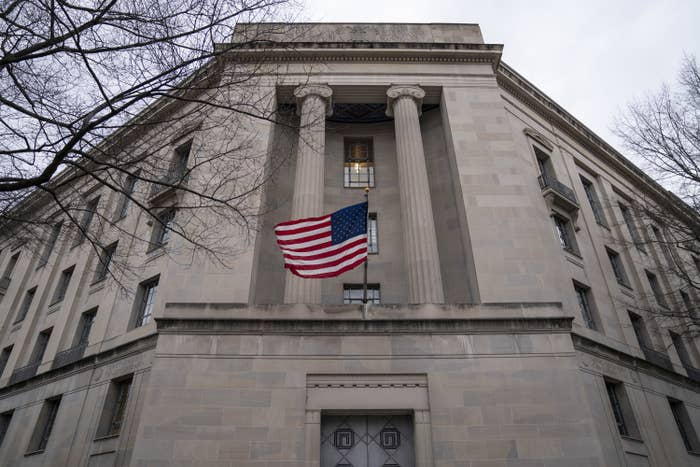
BuzzFeed News has reporters across five continents bringing you trustworthy stories about the impact of the coronavirus. To help keep this news free, become a member and sign up for our newsletter, Outbreak Today.
WASHINGTON — Lawmakers in the hardest-hit communities across the country are calling on the Justice Department to investigate potential civil rights violations in the disproportionate impact the coronavirus pandemic has had on communities of color.
Nearly three dozen lawmakers from all over the country, including New York, Chicago, Baltimore, Austin, and Detroit, signed onto a letter requesting the Justice Department’s Civil Rights Division investigate the actions of executive branches, at all levels of government, and their responses to COVID-19, the disease caused by the novel coronavirus.
In cities across the country, black and Latinx people are dying at higher rates, the letter notes. BuzzFeed News has reported on a system of comorbidities and structural racism that have contributed to the disproportionate numbers.
New York City Public Advocate Jumaane Williams, who signed the letter obtained in advance by BuzzFeed News, said Tuesday that while the disparity “is built upon historical inequities that existed beforehand that we have to address, [it was] exacerbated by terrible decisions that were made as the virus came into play.”
Brooklyn Borough President Eric Adams, another signatory, told BuzzFeed News, “It could not have been a coincidence that from the Southside of Chicago to South Jamaica, Queens, you get the same outcome. There was information that was known beforehand so you have to believe there were conscious decisions made in the deployment of resources, assets, and instructions.”
The letter goes on to ask DOJ to investigate, among other things, an uneven distribution of testing sites and inadequate protection for essential workers, who are disproportionately people of color.
“Primarily people who are getting it, dying from it, are in the very communities that they just sent out to work without protection,” Williams said. “These are intentional decisions that were made by local executives in the state.”
The group hopes the DOJ will expedite an investigation and offer subsequent policy recommendations ahead of a possible “second wave” of coronavirus cases that the director of the Centers for Disease Control and Prevention said could happen this fall and winter.
“We need some systems in place, so we’re hoping there’s a preliminary finding and then a longer-term finding,” said Adams.
Access to testing is also an issue local lawmakers hope the DOJ will help address. In mid-April, the New York Post reported that most residents living in zip codes with the highest per capita testing rates in New York City were whiter and wealthier. And in Detroit, where blacks make up 78.6% of the population, city councilmember Mary Sheffield told BuzzFeed News there have been reports that some residents did not have access to testing.
“There’ve been some concerning news reports of individuals who are denied treatment, denied testing, and then, unfortunately, passed away and bus drivers not having personal protective equipment when they’re on their jobs,” Sheffield, who also signed onto the letter, told BuzzFeed News Tuesday.
Federal lawmakers have made their own calls for better oversight into how the coronavirus pandemic is affecting people of color. Democrats in Congress pushed last month for the CDC to publish race and ethnicity data for COVID-19. And this week, Sen. Kamala Harris will introduce legislation that would create a federally appointed task force to oversee the distribution of coronavirus-related resources and funding in communities of color.
“We can’t make the same errors or intentional decisions that affected black and brown communities, like the ones we just did,” said Williams. “It’s not enough to say, ‘Oh this has happened, let’s move forward.”

